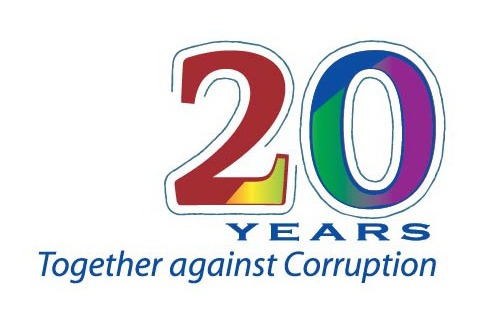Published: 16 October 2016
 Mr. José Carlos Ugaz Sánchez-Moreno, Chairperson of the International Board of Directors of Transparency International (TI) has arrived in Dhaka today on a two-day visit. This is his first visit to Bangladesh since he was elected Chair of the global anti-corruption coalition in 2014. The visit is hosted by Transparency International Bangladesh (TIB), the largest and most active chapter amongst more than 100 countries where TI is present.
Mr. José Carlos Ugaz Sánchez-Moreno, Chairperson of the International Board of Directors of Transparency International (TI) has arrived in Dhaka today on a two-day visit. This is his first visit to Bangladesh since he was elected Chair of the global anti-corruption coalition in 2014. The visit is hosted by Transparency International Bangladesh (TIB), the largest and most active chapter amongst more than 100 countries where TI is present.
The purpose of the visit is to facilitate mutual sharing and learning, drawing upon global and Bangladeshi experience of progress in promoting good governance and corruption prevention.
During his visit, Professor Ugaz is expected to meet senior officials of the Government of Bangladesh and statutory bodies including Prof. Dr. Gowher Rizvi, Adviser to the Honourable Prime Minister and Mr. Iqbal Mahmood, Chairman of the Anti-corruption Commission, as well as Advocate Sultana Kamal, Chairperson, and other Members of the Board of Trustees of TIB and other stakeholders from both public, private and non-government sector, academe, researchers, civil society, NGOs and media.
 The visit coincides with the observance of the 20th anniversary of TIB, involved in relentless efforts to build a social movement against corruption working together with all stakeholders including the government, political actors, civil society and media.
The visit coincides with the observance of the 20th anniversary of TIB, involved in relentless efforts to build a social movement against corruption working together with all stakeholders including the government, political actors, civil society and media.
TIB’s research, advocacy and civic engagement have contributed to strengthening the governance and anti-corruption architecture in Bangladesh. Examples include: the enactment of Anti-Corruption Act 2004 and the formation of Anti-Corruption Commission; Bangladesh’s accession to the UN Convention against Corruption (UNCAC) in 2007; the incorporation of anti-corruption curriculum for the secondary level students by the National Textbook Board in 2007; the enactment of the Right to Information Act 2009 in collaboration with other CSOs; the Whistleblower Protection Act 2011; and adoption of the “Commitment for Golden Bengal: National Integrity Strategy 2012 of Bangladesh”. As a demand-side research and advocacy organization TIB has also been working as a co-stakeholder with the relevant government authorities in enforcing and implementing these laws, policies and institutions.







